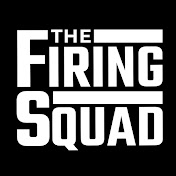Black cinema in America has a rich and complex history that is deeply intertwined with the struggles and triumphs of the African American community. From the early days of silent films to the present day, black filmmakers have been pushing boundaries and challenging stereotypes in an industry that has long been dominated by white voices.
One of the earliest examples of black cinema in America is Oscar Micheaux’s 1919 film “The Homesteader.” Micheaux was a pioneering filmmaker who wrote, directed, and produced over 40 films during the early 20th century. His films often tackled issues of race and identity, and he was known for casting black actors in leading roles at a time when black representation in Hollywood was virtually non-existent.
In the 1960s and 1970s, the black cinema movement known as “Blaxploitation” emerged, with films like “Shaft” and “Sweet Sweetback’s Baadasssss Song” becoming hits at the box office. These films were often criticized for their stereotypical portrayals of black characters, but they also provided opportunities for black actors and filmmakers to tell their own stories on screen.
The 1980s and 1990s saw a new wave of black filmmakers emerge, including Spike Lee, John Singleton, and Julie Dash. These filmmakers brought a fresh perspective to the industry, creating films that explored the complexities of black life in America. Spike Lee’s “Do the Right Thing” and John Singleton’s “Boyz n the Hood” are now considered classics of American cinema.
In recent years, black filmmakers have continued to make their mark on the industry, with films like “Moonlight” and “Get Out” winning critical acclaim and audience approval. These films have provided a platform for black voices to be heard and have challenged traditional Hollywood narratives about race and representation.
Despite these successes, black filmmakers still face significant challenges in the industry, including lack of funding and opportunities for distribution. The need for more diversity in Hollywood has become increasingly urgent, as audiences demand more representation on screen.
In the midst of these challenges, the rise of streaming platforms like Netflix and Amazon has provided new opportunities for black filmmakers to share their stories with a wider audience. These platforms have also opened doors for independent filmmakers to create and distribute their own work, bypassing traditional gatekeepers in the industry.
As we look to the future of black cinema in America, it is clear that the legacy of pioneering filmmakers like Oscar Micheaux and Spike Lee will continue to inspire new generations of storytellers. With the support of audiences and the industry, black filmmakers will continue to push boundaries and challenge stereotypes, creating a more inclusive and diverse cinematic landscape for all to enjoy.
In conclusion, the history of black cinema in America is a story of resilience, creativity, and cultural significance. From the early days of silent films to the present day, black filmmakers have been at the forefront of pushing boundaries and challenging stereotypes. As we look to the future, it is clear that black cinema will continue to thrive and evolve, providing a platform for diverse voices to be heard and celebrated on screen.
************
Want to get more details?
The Firing Squad
https://www.firingsquadfilm.com/
West 28th Street
Get ready to be on the firing squad, as we bring you the most intense and action-packed films that will leave you at the edge of your seat. Stay tuned for adrenaline-pumping thrillers, heart-pounding dramas, and jaw-dropping action scenes, only on firingsquadfilm.com!
![]()
![]()
![]() For more information on Christian movie firing squad 2024 contact us anytime:
For more information on Christian movie firing squad 2024 contact us anytime:
The Firing Squad
https://www.firingsquadfilm.com/
West 28th Street
Get ready to be on the firing squad, as we bring you the most intense and action-packed films that will leave you at the edge of your seat. Stay tuned for adrenaline-pumping thrillers, heart-pounding dramas, and jaw-dropping action scenes, only on firingsquadfilm.com!

